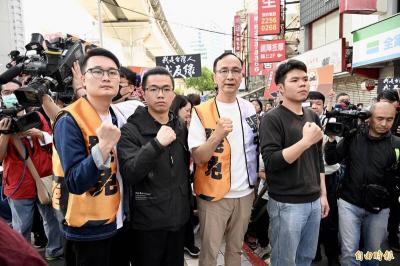The Democratic Progressive Party (DPP) caucus will mobilize a massive campaign against the Department of Health (DOH) if the government agrees to a full opening to US beef products, the DPP caucus said yesterday.
DPP Legislator Wang Sing-nan (王幸男) lambasted the government ahead of a possible announcement lifting the ban on US meat from cattle more than 30 months old and beef with bones, saying such an action would jeopardize public health in Taiwan.
Under DPP rule, the government agreed to US beef imports but on the strict condition that the meat be from cattle younger than 30 months of age, and beef with bones was barred when a case of bovine spongiform encephalopathy (BSE), or mad cow disease was discovered in 2005.
On Tuesday, the Ministry of Foreign Affairs said it was optimistic that US beef would gain full access to the Taiwan market “sometime this year,” prompting the media to speculate the ban would be lifted by the end of this month or early next month.
Wang said the government should look at the public angst that arose in South Korea and Japan when those two countries opened their borders to US beef.
Gao Jyh-peng (高志鵬), another DPP lawmaker questioned whether the Ma administration had conceded to US pressure on beef in exchange for his transit stops on US soil and urged the public to stand united in boycotting US beef.
The DPP said it plans to mobilize the public to launch a “one person, one call” campaign to let the DOH know the public’s objection to lifting the ban.

The Ministry of Economic Affairs has fined Taobao NT$1.2 million (US$36,900) for advertisements that exceeded its approved business scope and ordered the Chinese e-commerce platform to make corrections in the first half of this year or its license would be revoked. Lawmakers have called for stricter supervision of Chinese e-commerce platforms and more stringent measures to prevent China from laundering its goods through Taiwan as US President Donald Trump’s administration cracks down on origin laundering. The legislature’s Finance Committee yesterday met to discuss policies to prevent China from dumping goods in Taiwan, inviting government agencies to report on the matter. Democratic Progressive Party

Taiwan and its Pacific ally Tuvalu on Tuesday signed two accords aimed at facilitating bilateral cooperation on labor affairs, according to Taiwan’s Ministry of Foreign Affairs (MOFA). The governments inked two agreements in Taipei, witnessed by Foreign Minister Lin Chia-lung (林佳龍) and visiting Deputy Tuvaluan Prime Minister Panapasi Nelesone, MOFA said in a news release. According to MOFA, the agreements will facilitate cooperation on labor issues and allow the two sides to mutually recognize seafarers’ certificates and related training. Taiwan would also continue to collaborate with Tuvalu across various fields to promote economic prosperity as well as the well-being of their

Taiwan would welcome the return of Honduras as a diplomatic ally if its next president decides to make such a move, Minister of Foreign Affairs Lin Chia-lung (林佳龍) said yesterday. “Of course, we would welcome Honduras if they want to restore diplomatic ties with Taiwan after their elections,” Lin said at a meeting of the legislature’s Foreign Affairs and National Defense Committee, when asked to comment on statements made by two of the three Honduran presidential candidates during the presidential campaign in the Central American country. Taiwan is paying close attention to the region as a whole in the wake of a

The Taipei District Prosecutors’ Office has continued its investigation into allegations of forged signatures in recall efforts today by searching the Chinese Nationalist Party’s (KMT) city chapter and questioning several personnel including the chapter director, according to media reports. Among those questioned and detained were KMT Taipei chapter director Huang Lu Chin-ju (黃呂錦茹), chapter secretary-general Chu Wen-ching (初文卿), chapter secretary Yao Fu-wen (姚富文) and first district committee executive director Tseng Fan-chuan (曾繁川). Prosecutors said they would not confirm reports about who had been summoned. The investigation centers on allegations that the ongoing recall campaigns targeting Democratic Progressive Party legislators Rosalia Wu (吳思瑤)